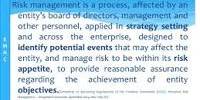What qualities come to mind when you think of great leadership? You’re probably picturing a strong, confident leader with a slew of admirable qualities. Such as intelligence, charisma, inventiveness, and a willingness to put in the necessary hard work to get things done. But there is another leadership trait that many successful leaders share: humility in leadership.
According to new research, humble leaders of teacher groups helped improve professionalism and collaboration among team members. The study, which was conducted in China, discovered that teachers in the Chinese equivalent of professional learning communities (PLCs) were more willing to share their knowledge and expertise when they rated their PLC leaders as more humble.
According to study co-author Roger Goddard, professor of educational studies at The Ohio State University, the reason was that humble leaders made teachers feel more empowered to share their knowledge because they felt psychologically safe to take risks.
“A little humility on the part of leaders can help groups be more productive and collaborative,” Goddard said. “When people believe their leader is willing to admit mistakes and learn from others, everyone contributes more and these groups become more effective.”
Goddard collaborated on the study with Yun Qu of Beijing Normal University in China and Jinjie Zhu, an education doctoral student at Ohio State. The study was recently published online in the journal Educational Studies.
A little humility on the part of leaders can help groups be more productive and collaborative. When people believe their leader is willing to admit mistakes and learn from others, everyone contributes more and these groups become more effective.
Yun Qu
PLCs are intended to facilitate professional development in the United States and elsewhere by facilitating discussions in which teachers share their best practices and what they have learned from their classroom experiences.
“Teachers can feel fairly isolated in the classroom,” Goddard said. “PLCs help teachers develop a sense of community and learn from one another about how to improve classroom instruction.”
PLCs are known as Teaching Research Groups in China (TRGs). TRG leaders are experienced teachers who do not serve as traditional administrators but do serve as supervisors and coordinators and are involved in teacher evaluations, lesson planning, and teacher selection.
This study involved 537 teachers from 238 TRGs in a variety of both urban and rural schools in China. Teachers rated their TRG leaders on three dimensions of humility: their willingness to view themselves accurately, such as admitting when they didn’t know how to do something; their appreciation of others’ strengths; and their teachability, such as being open to other teachers’ advice.

Teachers who rated their TRG leaders as more humble were more likely to report that they shared their knowledge and expertise in TRG meetings, according to the findings. “The whole point of these groups is for teachers to share their knowledge,” Goddard explained. “The fact that humble leaders inspired individuals in their groups to be more willing to do this is very significant.”
The study also discovered why humble leaders were so effective at assisting teachers in sharing their knowledge. Teachers reported higher levels of psychological safety in TRGs with more humble leaders, indicating that they felt they could take risks and were confident that others would not undermine their efforts.
That feeling of safety led them to feel more psychologically empowered: They felt their jobs had meaning, they had autonomy to do their work, and they felt they were competent and that their work had impact in the school. So humble leadership led to teachers feeling psychologically safe, which made them feel empowered and ultimately led them to share their experience and knowledge more fully with their colleagues, Goddard said.
“This feeling of teachers that they could safely share their knowledge comes from having a leader who has humility – an openness to learning from others, a willingness to revise opinions, and an appreciation for the strengths of others,” he said.
While this study was conducted in China, Goddard believes the findings would be similar in the United States and elsewhere. “There is a lot of evidence that trust is an important component of successful organizations. And feeling psychologically safe and empowered to share your knowledge at work is part of developing trust, which humble leaders help to foster” He stated.
“That is as true in the United States as it is in China.” Similarly, the findings should be applicable outside of the realm of education. “Many of the same principles that govern successful organizations apply across cultures and fields. It stands to reason that humble leaders will foster trust and better relationships, thereby increasing the effectiveness of any groups that must collaborate” Goddard stated.
















